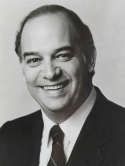| Abstract: |
Objective: Our aims were to (1) determine the long-term oncologic outcome for patients with rectal cancer treated with preoperative combined modality therapy (CMT) followed by total mesorectal excision (TME), (2) identify factors predictive of oncologic outcome, and (3) determine the oncologic significance of the extent of pathologic tumor response. Summary Background Data: Locally advanced (T 3-4 and/or N 1) rectal adenocarcinoma is commonly treated with preoperative CMT and TME. However, the long-term oncologic results of this approach and factors predictive of a durable outcome remain largely unknown. Methods: Two hundred ninety-seven consecutive patients with locally advanced rectal adenocarcinoma at a median distance of 6 cm from the anal verge (range 0-15 cm) were treated with preoperative CMT (radiation: 5040 centi-Gray (cGy) and 5-fluorouracil (5-FU)-based chemotherapy) followed by TME from 1988 to 2002. A prospectively collected database was queried for long-term oncologic outcome and predictive clinicopathologic factors. Results: With a median follow-up of 44 months, the estimated 10-year overall survival (OS) was 58% and 10 year recurrence-free survival (RFS) was 62%. On multivariate analysis, pathologic response >95%, lymphovascular invasion and/or perineural invasion (PNI), and positive lymph nodes were significantly associated with OS and RFS. Patients with a >95% pathologic response had a significantly improved OS (P = 0.003) and RFS (P = 0.002). Conclusions: Treatment of locally advanced rectal cancer with preoperative CMT followed by TME can provide for a durable 10-year OS of 58% and RFS of 62%. Patients who achieve a >95% response to preoperative CMT have an improved long-term oncologic outcome, a novel finding that deserves further study. Copyright © 2005 by Lippincott Williams & Wilkins. |














